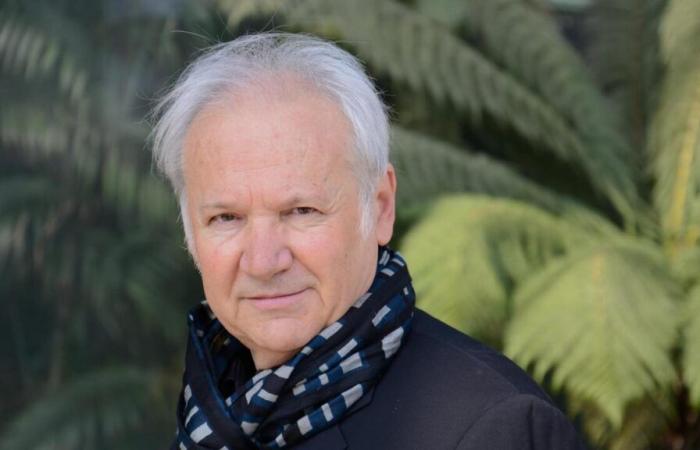Twenty-five years ago, Gallimard Editions created the “Black Continents” collection dedicated to writers from Africa and its diaspora. The initiative has long been criticized and its founders accused of wanting to ghettoize African literature. The fact remains that this collection, now boasting some 130 titles, has brought to the fore some of the big names in contemporary African letters. Interview with Jean-Noël Schifano, director of the collection.
RFI: Hello, Jean-Noël Schifano. Would you like to remind us of the circumstances of the birth of the “Black Continents” collection??
Jean-Noël Schifano: It’s a literary adventure that began with the founding trip that I made with Antoine Gallimard to Gabon, in Libreville, in January 1999. During the trip, Antoine said to me: “ It would be good if you took charge of a collection which concerns Africa and African writers and that we founded the collection in the Gallimard house. “. And exactly one year later, we come to present at the same place, in Gabon, in Libreville, the first five authors of “Black Continents”. Twenty-five years later, we have more than 130 titles, 54 authors and around thirty literary prizes.
Who are the first five authors in the collection?
The first five authors of Dark continent are Gaston-Paul Effa and his novel The cry you let out won’t wake anyoneJustine Minsa and her novel called History of Awutranslated in the United States and which continues to be reprinted, Sylvie Kandé, a very great poet, a very great stylist and her first work Lagoon Lagoonafterword by Edouard Glissant, The Komo revoltnovel by Malian Aly Diallo. And among them, Antoine Gallimard offered to publish one of the most powerful roots of African literature: the Nigerian Amos Tutuola. The novel translated into the language of Voltaire in 1953 by Raymond Queneau. The title of this novel The Drunkard in the Bush. It is a Yoruba novel, an absolute masterpiece, its author Amos Tutuola is a great writer, no one can deny it. Well, when he died, two years before the release of the first “Black Continents”, no one in the world talked about it. There was nothing in the media, neither in France nor in England where Tutuola published with Faber and Faber. In “Black Continents”, I am very happy to have helped in his resurrection.
Roots and discoveries are the logics on which you built “Black Continents”. Who are the main authors discovered over the past twenty-five years?
I give you the authors who published their first book with “Continents Noirs”. Sylvie Kandé, I have already named you, who gave Lagon, Lagunes. She is an author who knows how to write historical epics in verse. Ousmane Diarra whose latest novel The road of clamor was also released in Folio. Natacha Appanah, who more than twenty years ago, appeared to me one beautiful spring day, a shy and radiant young woman, in the middle of the Paris Book Fair, the manuscript of Gold Powder Rocks by hand and is today part of the prestigious, if ever there was one, Gallimard reading committee. Mahamat Saleh-Haroun, the great filmmaker celebrated in Cannes, in Venice, wherever his films move us so much, he chose “Black Continents” for his first novels. He is a new writer who is seasoned in the art of showing and moving people. Now, what is writing? It’s about making people see and move with words, whereas he started with images. This is the march of the “Black Continents”.
You receive approximately 200 manuscripts per year. What are your selection criteria?
Someone who knows how to write, who knows how to make people see and move people. It is extremely important because in nostalgia and revenge which are the two stages of the driving force of writing, well Africa which has suffered so much, which lives, which resuscitates, which relives, and the African writers who are always seeking a journey in writing, they truly have a royal place. This is why I have always wanted to make “Black Continents” from the beginning a diamond point of universal writing and I believe that these twenty-five years will confirm that the diamond point is well cut.
To display this YouTube content, it is necessary to authorize audience measurement and advertising cookies.
Accept
Manage my choices






